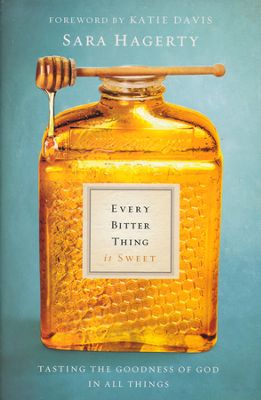
Tell the truth—no matter what. Worship God—no matter what. Two things, in their very simplest form, I learned from Elisabeth Elliot.
Most of you probably know by now that Elisabeth Elliot, one of the 20th century’s most influential Christian women, died this week (June 15) at the age of 88 after a 10-year struggle with Alzheimer’s. In her living and in her dying, she left an indelible, eternal print on the lives of more women—and men—than we will ever know.
I was one of them. I knew her many years ago as my father’s friend. Betty, as he called her, and my dad shared the same publisher (then called Harper and Rowe), and they became friends. She was in our home twice, I believe—once when she was doing a series of meetings at our church on Cape Cod; and once when she spoke at a writer’s conference at Wheaton College, where my dad was a professor and I was a freshman.
I will never forget the impact she made on my young life. I see her standing in our church singing all the verses of the great old hymns of the faith. “How Firm a Foundation” was one of her favorites. She told us that she particularly clung to one verse during the years she lived with her young daughter among the Aucas: “The soul that on Jesus has leaned for repose/ I will not, I will not, desert to its foes/ That soul though all hell should endeavor to shake/ I will never—no never—no, never forsake.” I think of her every time I sing that song (often, actually). And I know all the verses.
I remember conversations with my parents about how frustrated Betty became with attempts to explain God that were based on either ignorance or the desire to tame Him, or make Him fit our image (rather than us His), or almost provide PR for Him. There are so many things in life which we just don’t know, or don’t—and maybe won’t ever—understand, she would comment. “But God doesn’t owe us an explanation. He calls on us simply to bow before Him and worship Him no matter what life’s circumstances may be.” The first part of that quote I know to be her very words (my mother quoted them often); the second part may be my paraphrase but captures her truth.

I remember her speaking in my Creative Writing class at Wheaton. When asked a number of questions about the role of the Christian writer, the theme of her answers was always, in essence, “Tell the truth as you see it. Your job is not to preach, but rather to write truthfully about life as you see it. Of course as a Christian, you will have a certain perspective. But simply write what you see.” (my paraphrase—college was a long time ago!)
In my two favorite Elliot books (published long ago—not sure they’re even still in print), she did exactly that. She told the truth as she saw it. One, Who Shall Ascend, is the biography of a great man, R. Kenneth Strachan, who founded the Latin American Mission. His life and his death. his doubts and his faith—all are recorded with a clear-eyed honesty that profoundly affected my young perspective on both ministry and “Christian death.” The other, No Graven Image, (her only novel), tells the story of Margaret Sparhawk, a missionary among the Quichua in Ecuador who sounds a lot like the author herself. Her struggles with doubt and faith and ministry and the “whys” of God’s ways are recorded with brutal honesty. The hero of both books? God. Not Ken Strachan or Margaret Sparhawk or missionary work, but God.
Authenticity. Trust, which leads to worship. That’s what I remember about the Elisabeth Elliot I so admired and respected as a young girl. She cast a very long shadow.
I’ve thought of her often in recent years, as I’ve occasionally read the blog [http://www.elisabethelliot.org/ramblings.html ] that her devoted husband, Lars Gren, has kept up about her. How painfully ironic that such a brilliant woman should stage her “last battle” with the loss of her remarkable mind. But then, “God doesn’t owe us an explanation.” And in some space deep in her soul, I like to think she held fast to her own words (and God’s): “Remember, you are loved, and underneath are the everlasting arms.” Remember.













